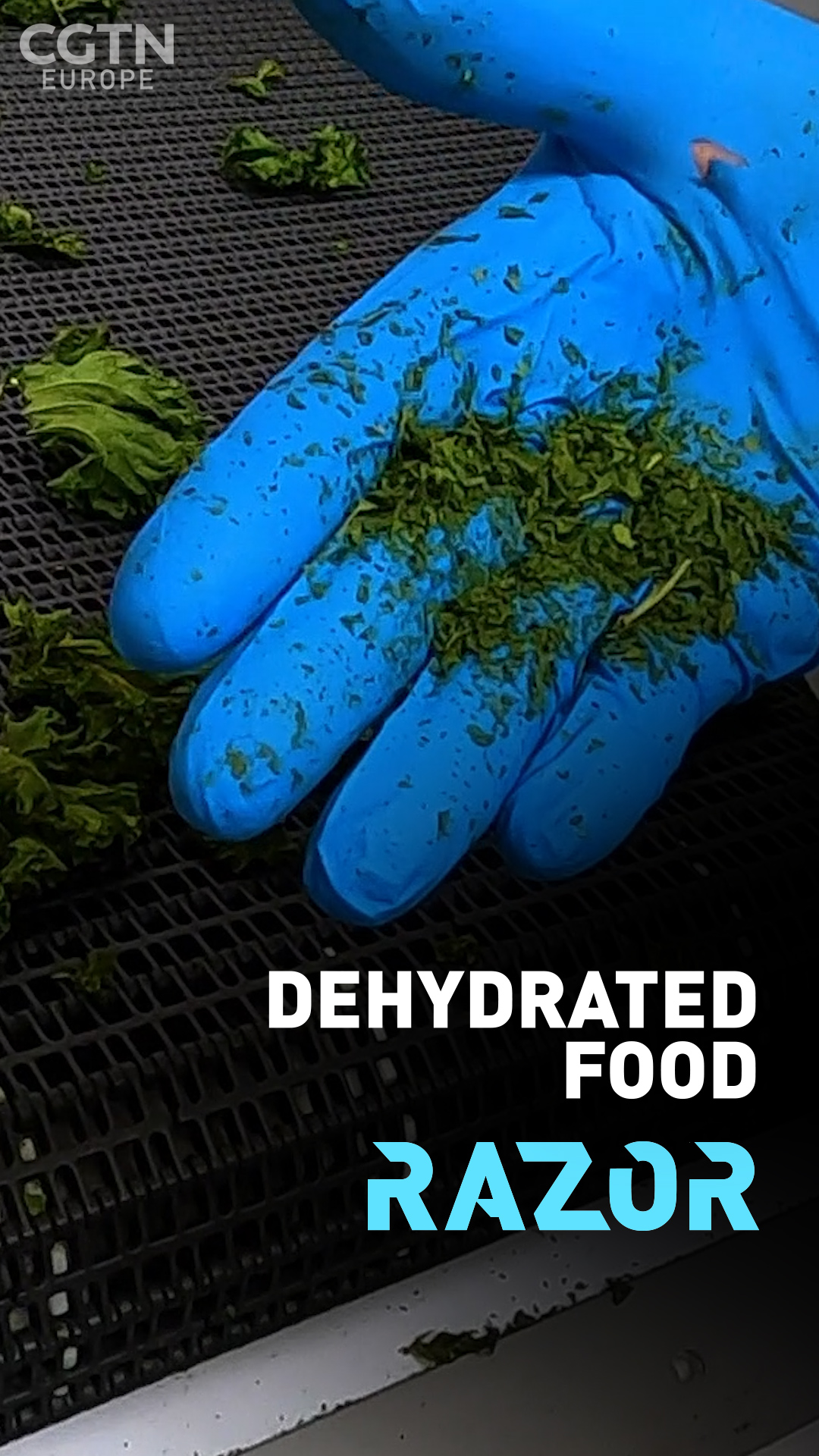02:16

Every day, food is thrown away in huge amounts. Inside landfills, food is the number one item, and this waste is estimated to cost the global economy $2.6 trillion a year.
Almost a third of all food produced for human consumption is wasted every year, and, according to the UN, 1.3 billion tonnes of grown food never makes it from the field to people's plates.
But one company in San Francisco is hoping to change this with its novel drying technology.
"There's over a billion people that do not have access to the right nutrition, and there is about $1.6 trillion of food waste that gets grown but never makes it to someone's mouth," explains Derk Hendriksen, Co-CEO of Treasure8. "Connecting all of that systemic waste and processing it, so that the nutrition that is in there gets retained and becomes accessible to people who need it most - that's what we're trying to do here."

Dehydrated food at Treasure8. Credits: CGTN
Dehydrated food at Treasure8. Credits: CGTN
The company is currently using produce from farmers who had an excess of supply due to the shrinking of the market caused by the COVID-19 pandemic, and dehydrates this food that would otherwise be wasted, through a machine they call 'Sauna.'
The sauna dehydrates the food in a way that not only keeps its original nutritional value, but also its taste. The advantages are many, including reduced size and longer shelf life.
"When it comes to trucks on the road that need to get product from A to B, the heavier, or the more volume, it is, the worse it is, so taking the water out, dehydrating it, makes it much easier to get it from A to B," explains Timothy Childs, co-CEO and founder of the company.
Dehydrating food can not only reduce food waste, but also bring in more nutritional food to those in need: "As we're starting to see the challenges with COVID-19, people's buying power is going to be coming down, they're going to be reaching for more, more crappy food. So it's going to be even more important to get more nutrition in the hands of people."